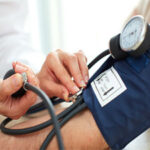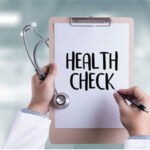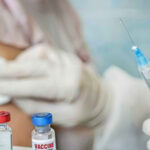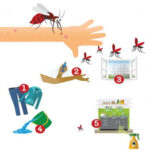
Don’t Smoke
Smoking tobacco causes NCDs such as lung disease, heart disease and stroke. Tobacco kills not only the direct smokers but even non-smokers through second-hand exposure. Currently, there are around 15.9 million Filipino adults who smoke tobacco but 7 in 10 smokers are interested or plan to quit.
If you are currently a smoker, it’s not too late to quit. Once you do, you will experience immediate and long-term health benefits. If you are not a smoker, that’s great! Do not start smoking and fight for your right to breathe tobacco-smoke-free air.

Be Active
Physical activity is defined as any bodily movement produced by skeletal muscles that requires energy expenditure. This includes exercise and activities undertaken while working, playing, carrying out household chores, travelling, and engaging in recreational pursuits. The amount of physical activity you need depends on your age group but adults aged 18-64 years should do at least 150 minutes of moderate-intensity physical activity throughout the week. Increase moderate-intensity physical activity to 300 minutes per week for additional health benefits.

Check Your Blood Pressure Regularly
Hypertension , or high blood pressure, is called a “silent killer”. This is because many people who have hypertension may not be aware of the problem as it may not have any symptoms. If left uncontrolled, hypertension can lead to heart, brain, kidney, and other diseases. Have your blood pressure checked regularly by a health worker so you know your numbers. If your blood pressure is high, get the advice of a health worker. This is vital in the prevention and control of hypertension.

Get Tested
Getting yourself tested is an important step in knowing your health status, especially when it comes to HIV, hepatitis B, sexually-transmitted infections (STIs) and tuberculosis (TB). Left untreated, these diseases can lead to serious complications and even death. Knowing your status means you will know how to either continue preventing these diseases or, if you find out that you’re positive, get the care and treatment that you need. Go to a public or private health facility, wherever you are comfortable, to have yourself tested.

Get Vaccinated
Vaccination is one of the most effective ways to prevent diseases. Vaccines work with your body’s natural defenses to build protection against diseases like cervical cancer, cholera, diphtheria, hepatitis B, influenza, measles, mumps, pneumonia, polio, rabies, rubella, tetanus, typhoid, and yellow fever.
In many third world countries,, free vaccines are provided to children 1 year old and below as part of the Department of Health’s routine immunization program me. If you are an adolescent or adult, you may ask your physician if to check your immunization status or if you want to have yourself vaccinated.

Practice Safe Sex
Looking after your sexual health is important for your overall health and well-being. Practice safe sex to prevent HIV and other sexually transmitted infections like gonorrhea and syphilis. There are available prevention measures such as pre-exposure prophylaxis (PrEP) that will protect you from HIV and condoms that will protect you from HIV and other STIs.

Cover Your Mouth When Coughing or Sneezing
Diseases such as influenza, pneumonia and tuberculosis are transmitted through the air. When an infected person coughs or sneezes, infectious agents may be passed on to others through airborne droplets. When you feel a cough or sneeze coming on, make sure you have covered your mouth with a face mask or use a tissue then dispose it carefully. If you do not have a tissue close by when you cough or sneeze, cover your mouth as much as possible with the crook (or the inside) of your elbow.

Prevent Mosquito Bites
Mosquitoes are one of the deadliest animals in the world. Diseases like dengue, chikungunya, malaria and lymphatic filariasis are transmitted by mosquitoes and continue to affect people worldwide. You can take simple measures to protect yourself and your loved ones against mosquito-borne diseases. If you’re traveling to an area with known mosquito-borne diseases, consult a physician for a vaccine to prevent diseases or if you need to take antimalarial medicines. Wear light-colored, long-sleeved shirts and pants and use insect repellent. At home, use window and door screens, use bed nets, and clean your surroundings weekly to destroy mosquito breeding sites.
